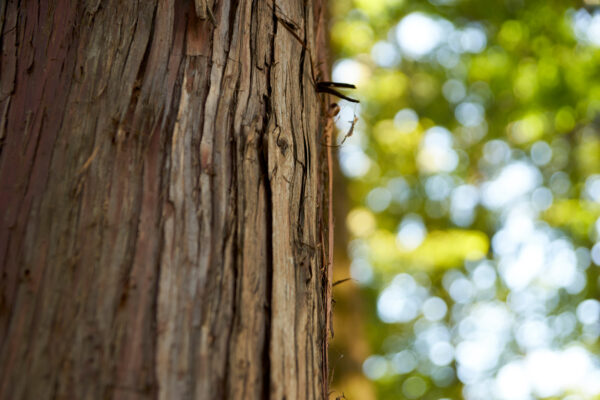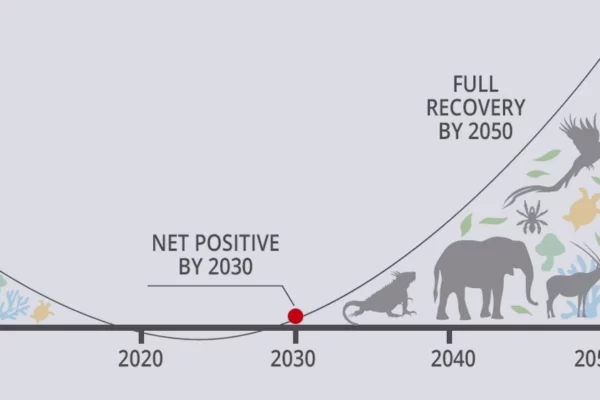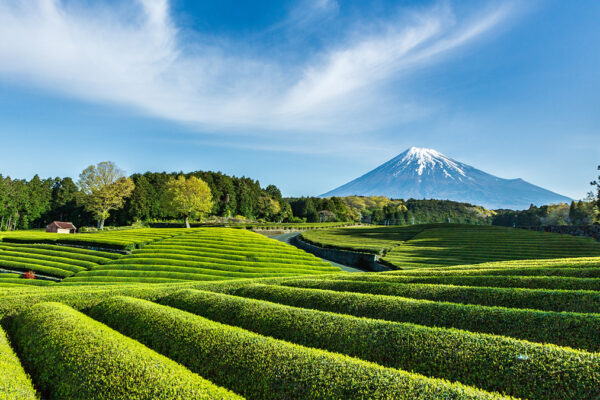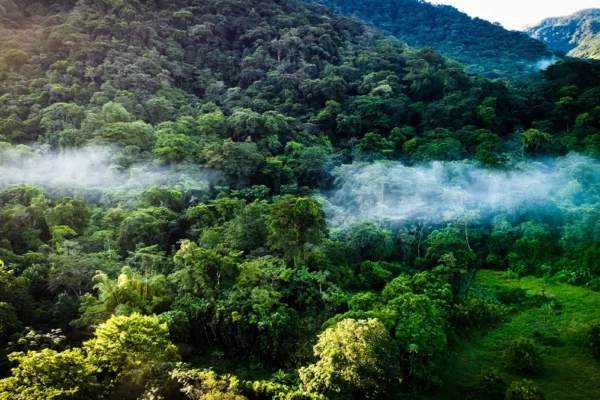Earth Overshoot Day – Considering Resource Consumption in Japan
About “Earth Overshoot Day”
“Earth Overshoot Day” is the date on the calendar when human consumption exceeds the Earth’s annual capacity to regenerate resources for that year.
This is annually announced by the international environmental think tank, the Global Footprint Network (GFN).
EARTH OVER SHOOT DAY
https://overshoot.footprintnetwork.org/
Earth Overshoot Day is calculated using the formula “Biocapacity (annual supply of biological resources from the Earth’s ecosystems) ÷ Ecological Footprint * 1 × 365 days.”
*1
The Ecological Footprint signifies the “footprint on the ecosystem.” It is a representation of the land area necessary to sustain economic activities of the world, countries, and other entities. This land area is divided into six categories: cropland, grazing land, forest land, fishing grounds, built-up land, and carbon footprint. The calculation is carried out using a unique global unit of area known as “global hectare (global ha).” This incorporates factors like population, greenhouse gas emissions, resource utilization including forests and cropland, excessive fishing, and evaluates the consumption, production, and waste efficiency per individual, all within the context of the world’s shared resources.
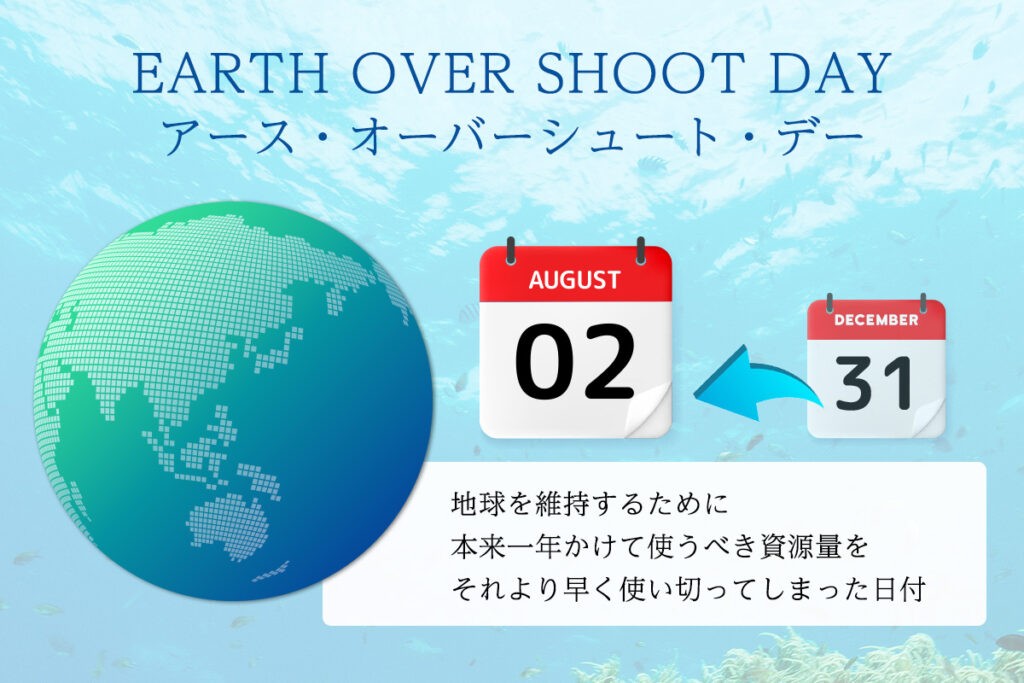
In other words, after Earth Overshoot Day, we are in debt to the Earth’s resources.
Currently, Earth’s resources are depleted, the population is growing, and supply and demand are out of balance.
This annual announcement is made to make people aware of the “overuse of Earth’s resources”.
Earth Overshoot Day is a public date for the entire world and each country.
This year (2023), the global Earth Overshoot Day was August 2.
Japan, on the other hand, was May 6.
This means that the country ran out of resources earlier than the world average.
Press release – 2023 Earth over shoot day
https://www.overshootday.org/newsroom/press-release-june-2023-english/
Past Earth Overshoot Day
<World>
2023/8/2
2022/7/28
2021/7/29
2020/8/22
2019/7/29
2018/8/1
<Japan>
2023/5/6
2022/5/6
2021/5/6
2020/5/12
2019/5/13
2018/5/10
The past history of the above shows little improvement.
The situation is getting worse, especially in Japan, where the years are getting shorter and shorter.
The fact that resources are depleted by the end of Golden Week means that Japan is using nearly three times as many resources as it originally had available that year.
However, looking around the country, supermarkets and convenience stores have an abundance of goods, water, electricity, and gas are available without any problems, and you would not feel it at all if you were living a normal life.
Japan is dependent on the world’s resources.
It is said that it takes the resources of 1.7 Earths to live the way we do today.
Data also exist for the case of the entire world living in each country.

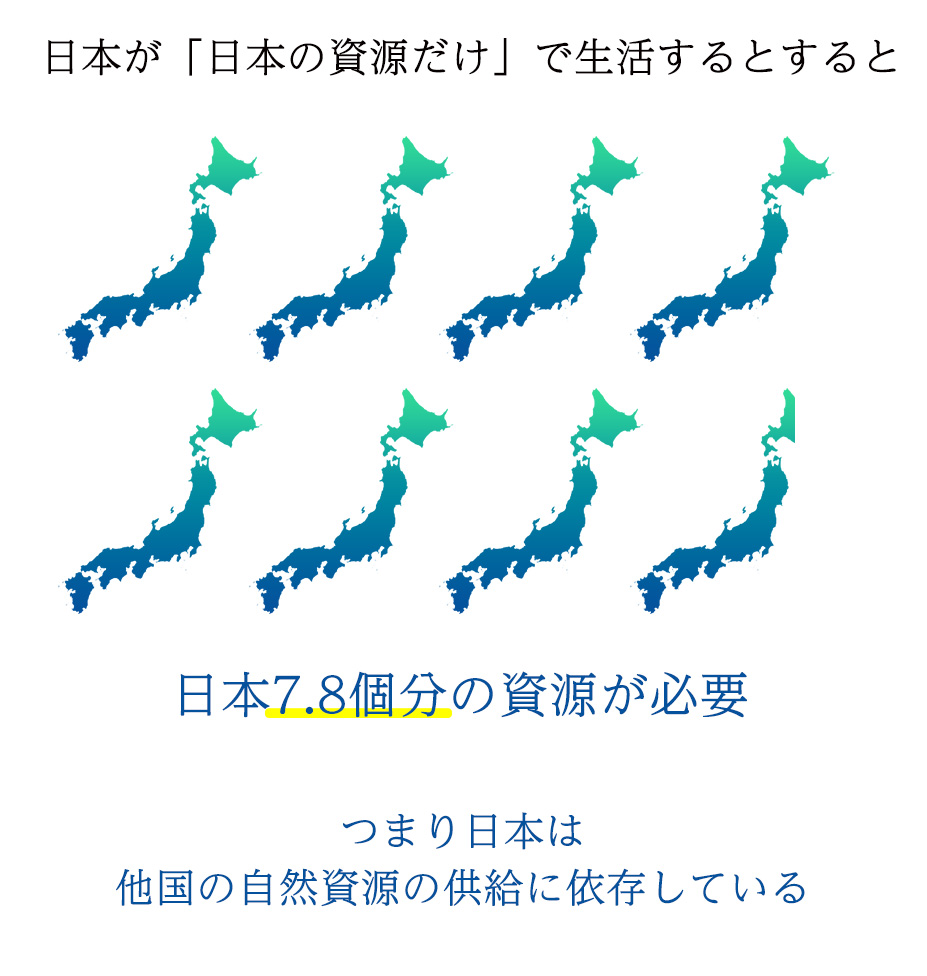
According to the Global Footprint Network, data*2 shows that if the entire world lived the same way as Japan, it would require 2.9 Earths, while Japan would need 7.8 Earths to meet Japan’s current consumption from Japanese resources alone.
That is how dependent we are on the supply of natural resources from other countries.
We must be aware that Japan is the world’s largest consumer of resources.
*2
How many Earths? How many countries?
https://www.overshootday.org/how-many-earths-or-countries-do-we-need/
The earth in deficit
This overshoot occurred in the 1970s and there has not been a positive year until now, and we have been in deficit for almost 50 years.
Like businesses and economies, the earth will go bankrupt if we continue to be in deficit.
It is essential that individuals change their lifestyles and companies grow products and services that use less energy, while making every effort to increase natural resources, such as increasing green carbon in forests and blue carbon in oceans.
The apparel industry is the second worst industry for the environment after the oil industry.
After years of doing “sustainable fashion,” I found a huge discrepancy even in that industry.
If it contains even 1% organic cotton, it can be said to be made of organic cotton, and even if it is 100% recycled polyester, did you know that it can be recycled almost only once?
It is difficult for consumers to learn and correct the fact that ethical fashion is not necessarily ethical.
I believe that there is a need to create rules and utilize certification systems that do not allow companies to deceive consumers.
Unfortunately, there are few factories in Japan that value the certification system, and the structure was such that choosing “Made in Japan” with low environmental costs for transportation = having to give up global sustainability standards.
Recently, however, there has been a movement among Japanese factories to educate their employees to raise environmental awareness and for managers to go out and learn and obtain certification themselves.
At CLASS EARTH, we would like to work together with producers to have sustainable manufacturing made in Japan recognized around the world.




